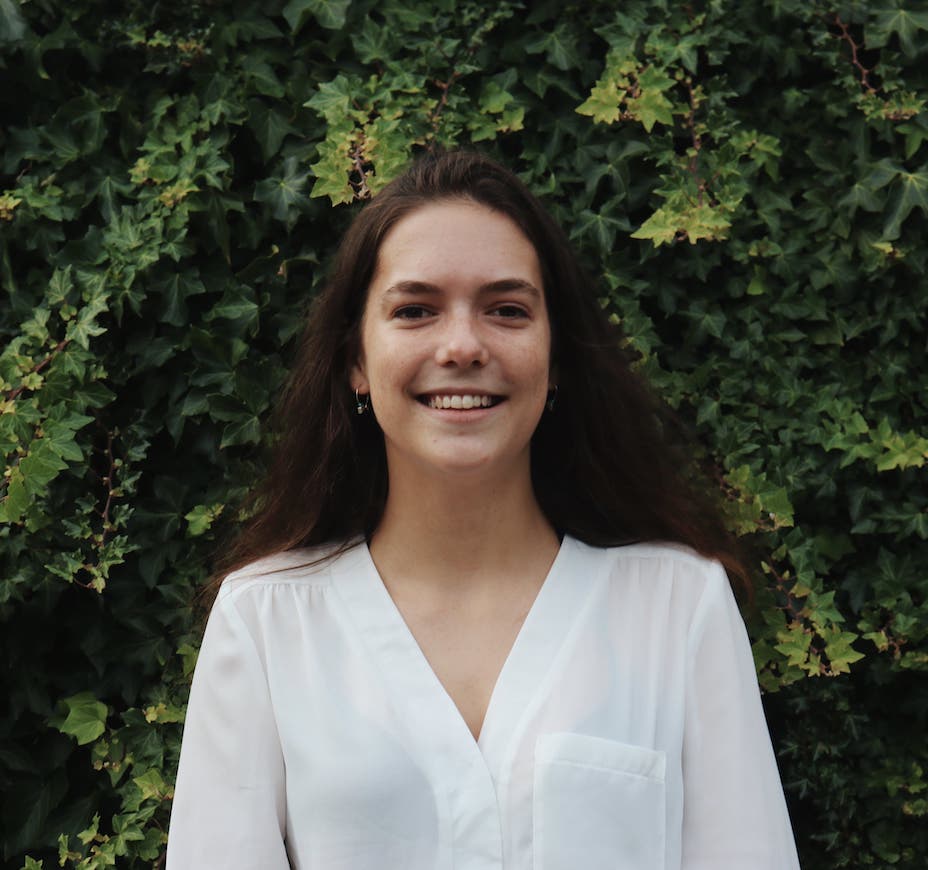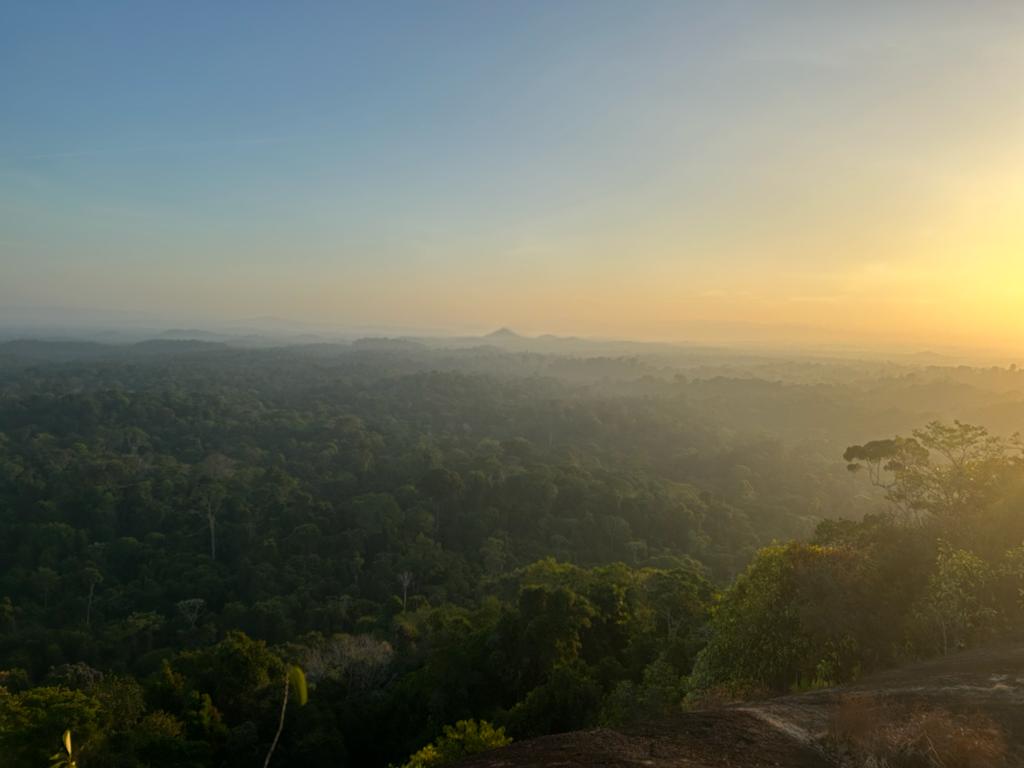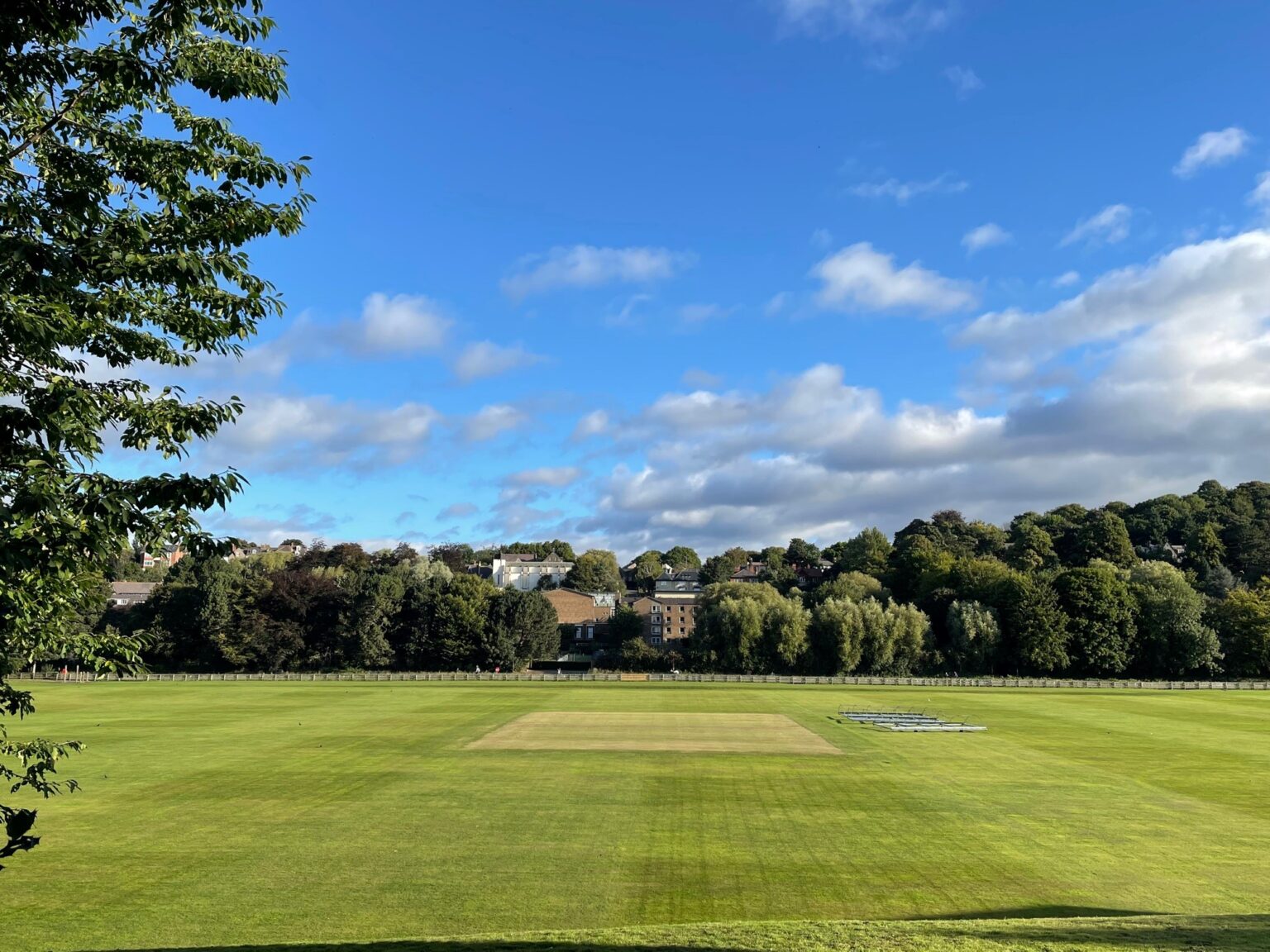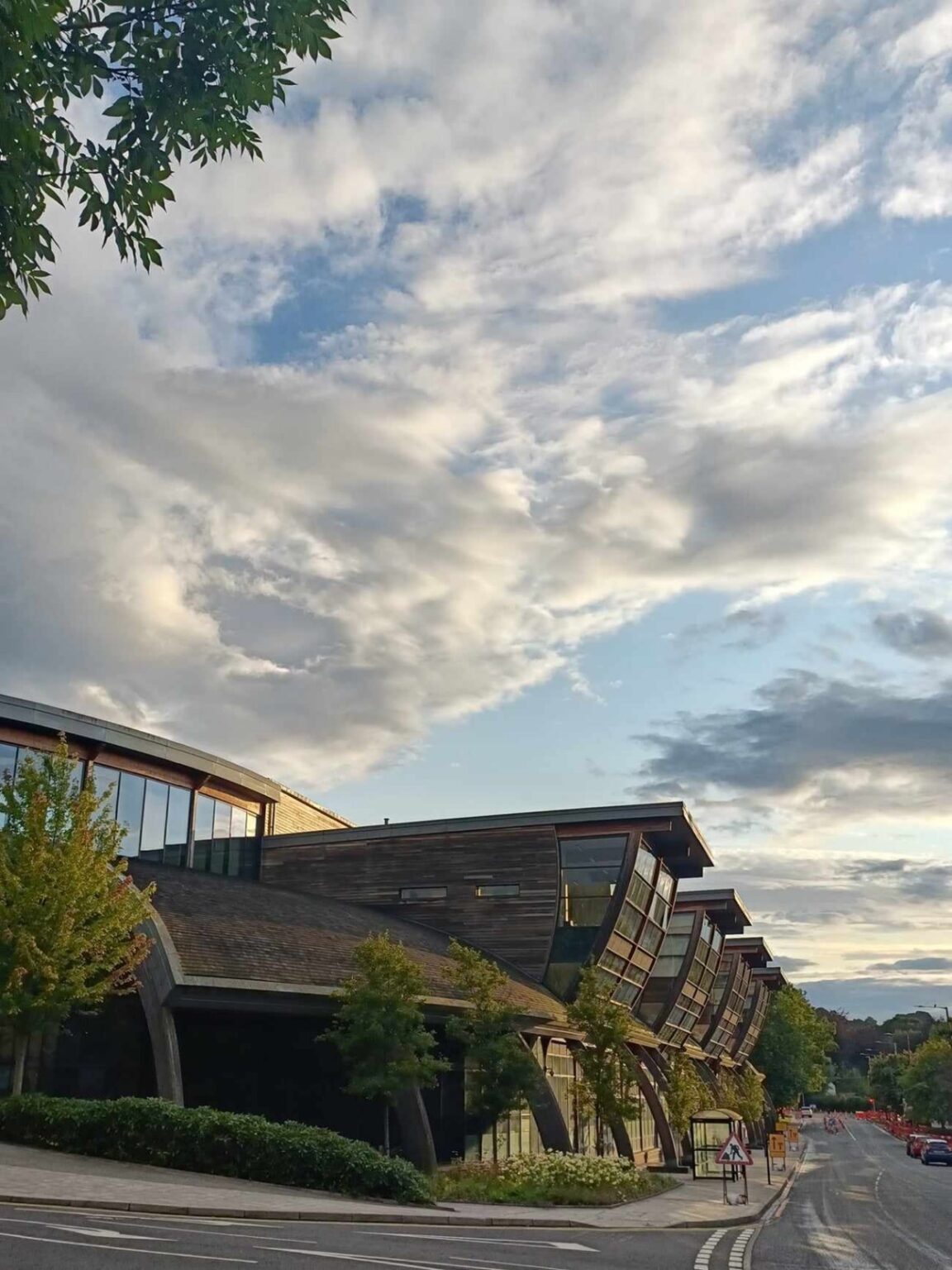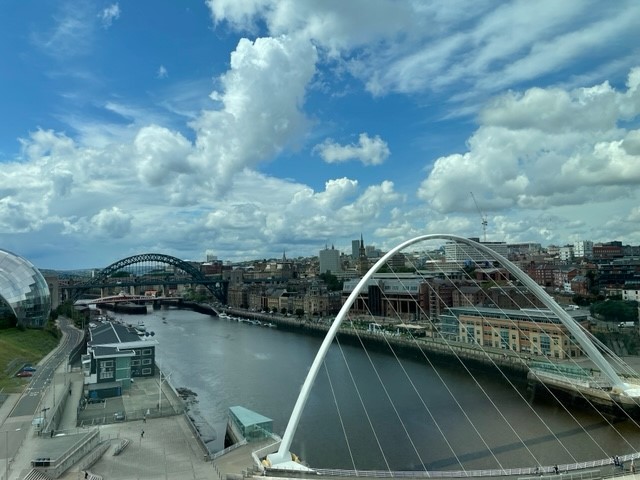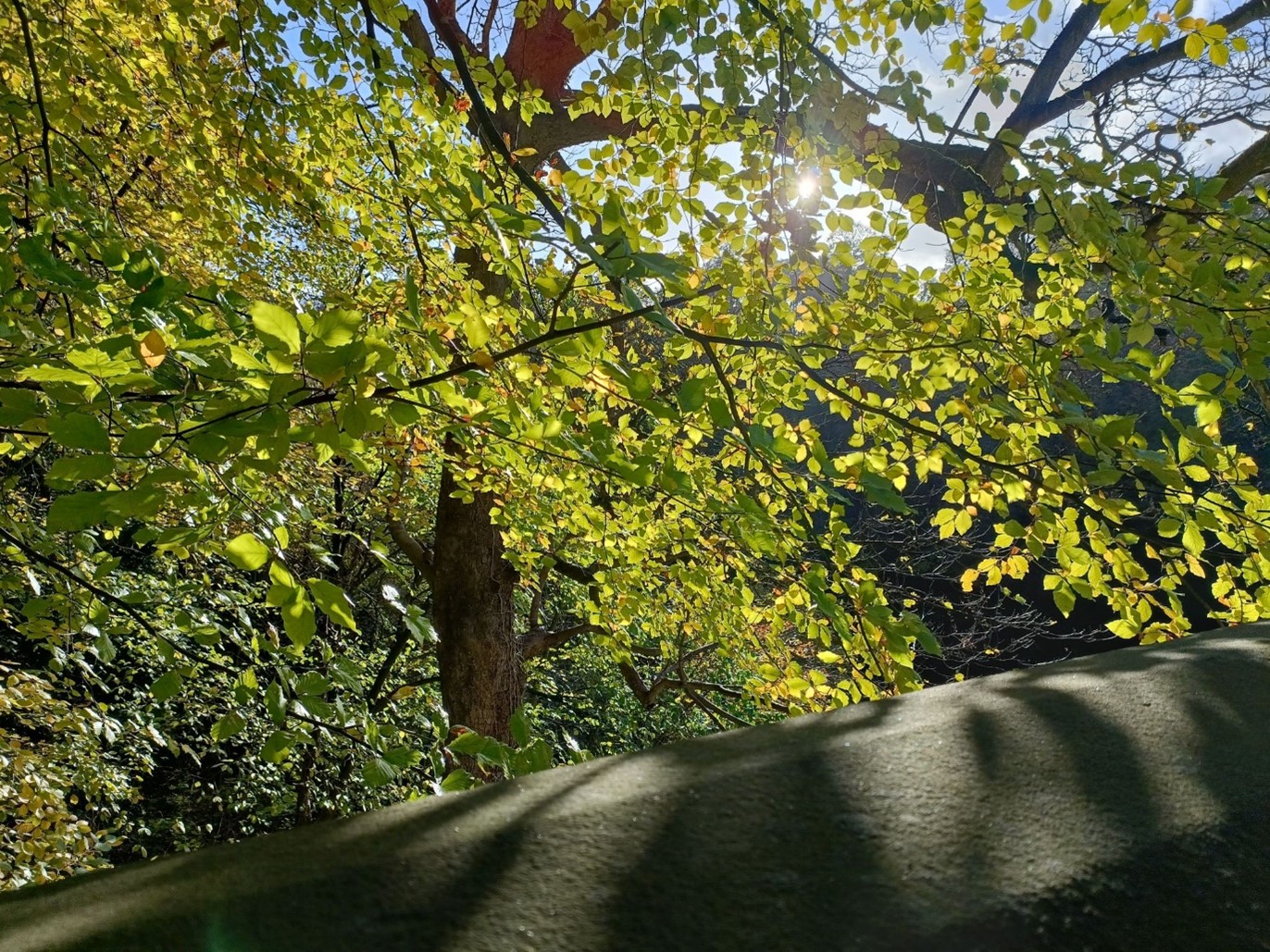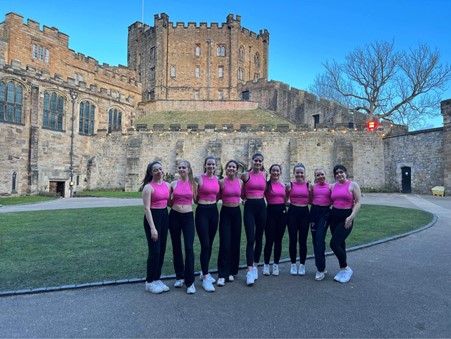Amy Campbell is a final year Human Geography student from the College of St Hild and St Bede, with a passion for sustainability and a drive to make the world a better place. During her time at Durham, Amy has become involved in a wide range of extra-curricular activities including lobbying the University to improve their sustainability impacts through ECO-DU, and starting Durham Environment and Sustainability Association (DESA) – providing career help and guidance to students pursuing a career in sustainability, as well as being awarded a scholarship in research and leadership which led to a fascinating research project in the middle east. She is also a passionate advocate for social mobility, championing state educated students to apply and excel at Durham. Amy has embraced all of the opportunities available to her and as she graduates this summer, is set to take on a new challenge as she joins the Civil Service Fast Stream shaping net-zero and sustainability policy.
We sat down with Amy to find out more about her achievements and plans for the future as she prepares to leave Durham and start her career.
In your 1st year, you were awarded the Laidlaw Scholarship in Research and Leadership and conducted research in the middle east – could you tell us a bit more about your research project and how you developed this work?
My Laidlaw research focused on illiberal democracy: when democratic process no longer protects our rights and freedoms. I was drawn to interrogate Israeli settler colonialism as a geopolitical case study of an ‘ethnocracy’ (a political structure in which the state apparatus is controlled by a dominant ethnic group). I found that constitutional liberalism was eroded even with supposedly democratic elections, and this can be seen across innumerable ethnically and religiously divided countries.
I conducted fieldwork in June 2019 interviewing 17 human-rights lawyers, Palestinian and Israeli politicians, NGO leaders, and academics – including representatives from the Israeli democracy institute, the Association for Civil Rights in Israel, Deputy Minister in the Prime Minister’s Office. These interviews gave me a valuable insight into how the mechanisms of democracy act in direct tension with social power and equality in Israel.
I was grateful to present at the 2019 International Undergraduate Research conference in Leeds, and the UCL annual Laidlaw conference a month later – the Laidlaw conference was a highlight of my entire scholarship experience, I met some of my closest friends and presenting my research to 400 scholars in 3 minutes was both incredibly nerve-wracking and important in understanding how to make my research interdisciplinary.
More recently, my Laidlaw paper titled ‘Illiberal Democracy: the Case of Democratic Erosion’ was published by the University of Colombia. It was fantastic to meet other Laidlaw scholars at the journal launch (at 1am UK time!)
I was especially delighted to receive positive feedback from an academic author whose work I really admire (Jeff Halper, ‘Decolonising Israel, Liberating Palestine’) on my paper. He wrote a highly acclaimed book which was crucial to my research. In his feedback, he stated that my paper helps set out a ‘road map…for the constitutional means to ensure the identity of democracy and liberal constitutionalism’ in Israel.
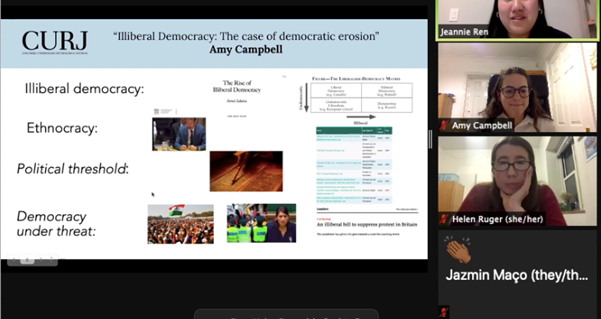
Sustainability and environmental issues have been central to your experience at Durham. Could you tell us a bit about your work with DESA (Durham Environmental and Sustainability Association)?
One key aim I had this year was collecting data on sustainability from the student and staff population, in order to provide hard evidence that more funding and policies are needed for the university to reach its climate targets. A sustainability survey is in its final stages and waiting on approval to be sent out to students.
Myself and three friends were frustrated at the lack of viable graduate level entry level routes into sustainability, and the hesitancy of so many students to consider a career in sustainability and so we created DESA. DESA should have already existed in Durham, and we are delighted that the organisation now has roughly 500 members, an expanding network of alumni, and a group of incredibly talented students to carry the momentum into next year. We’ve held talks from James Close (formerly Director for climate change at the World Bank, now head of Climate Change at Natwest), and Richenda Van Leeuwen, the Executive Director of the Aspen Institute.
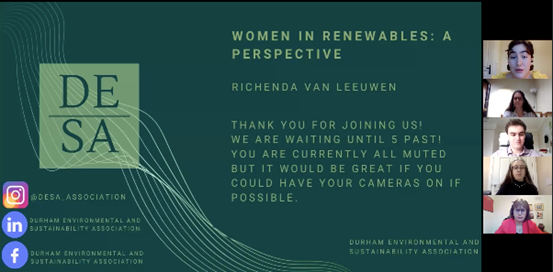
 Screenshot from one of the talks Amy organised as part of her work with DESA
Screenshot from one of the talks Amy organised as part of her work with DESALast summer, you completed an internship at the United Nations SDG2 Advocacy Hub in London. What were you working on there?
I was a research and communications intern and this involved coordinating UN agencies (on food and nutrition policy and international aid), private sector organisations and NGOs to achieve Sustainable Development Goal 2 (eradicating world hunger). It was fascinating to witness the influence that charities have on international policy and advocacy, and after helping to draft policy documents for the upcoming UN World Food Summit, I would love to work on international sustainability policy at some point in the future!
What opportunities have you had to help shape the curriculum at Durham?
Sustainability will be a mandatory and inevitable part of our future lives and careers. Through my work with ECO-DU, we played with the idea of a sustainability module as a compulsory part of all degree programmes, but instead, fleshing out the idea of a liberal arts style climate change degree was far more exciting. Currently, we are mapping out the different modules available within the environment and sustainability remit across departments, liaising with senior staff members on marking/timetabling/funding feasibility, and will soon begin gathering wider student support around the idea.
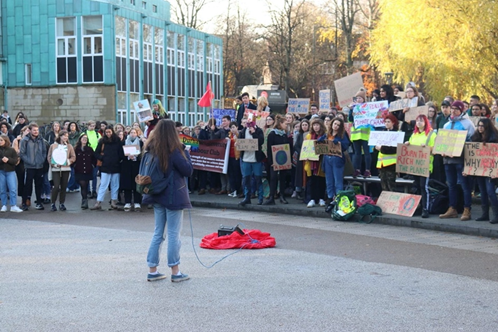
You’re currently conducting voluntary policy research for the Green Africa Youth Organisation – could you tell us about that?
GAYO is a youth-led gender balanced advocacy group focussing on environmental sustainability in Ghana, and West Africa. I hugely admire Josh (GAYO’s director)’s approach to the circular economy, and I’m conducting research around the sustainability of briquette’s for household cooking in Ghana. With an increasing demand for energy, and pressure to meet net-zero targets, GAYO is investigating the viability of using biomass briquettes rather than wood charcoal in Ghana – reducing environmental impacts and improving public health.
UpReach, who specialise in social mobility, have been a great support for you at University – could you tell us about your involvement with them and how they have enhanced your student experience?
UpReach was a lifeline for me throughout my time at university, and I would not have gained a spot on the Fast Stream without them. I suffered intense imposter syndrome throughout my first year, coming from a Cornwall state-school background, and I wouldn’t sugar-coat that to any prospective students applying from a state school background. I am inordinately grateful to my UpReach mentor for believing in me, offering support throughout the civil service exams, and holding practice interviews. I am a fierce social mobility and equal opportunities advocate – interning at UpReach last year to work on the REALrating contextualised grades platform made me realise just how much social mobility doesn’t end once we reach university.
What advice would you offer to new students about to start at Durham?
To any state educated students considering putting Durham as their first choice – universities like Durham won’t change unless we have the courage to make them inclusive, make the most of every opportunity and move away from the elite traditions and culture which Durham is famous for. Know that societies like the 93% club and ECO-DU are there to support you, and give you an ambitious and supportive space to make your Durham experience incredible.
You’re graduating this summer – what’s next for you?
I am so excited and grateful to have gained a place on the Civil Service Fast Stream as a generalist, thanks to support from the UpReach programme. I’m waiting to find out which department I get placed in, but I’m working towards net-zero policy development. I am driven to impact sustainability through political reform, strategy consulting, and contributing to legal standards which shift environmental demands across countries. I am also a social mobility advocate, always seeking to narrow the disparity between state and private school education.
At Durham, we’re involved in a number of exciting initiatives, programmes and collaborations to promote fair access and participation in higher education. Find out more about what we’re doing, and take a look at our Access and Participation Plan.
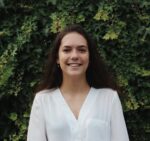
Amy Campbell
Amy is a final year Human Geography student from the College of St Hild and St Bede.

